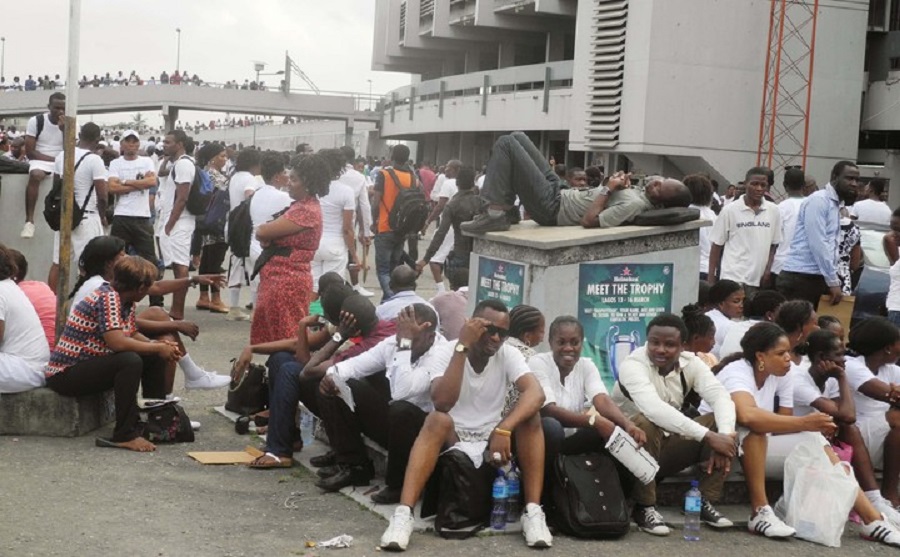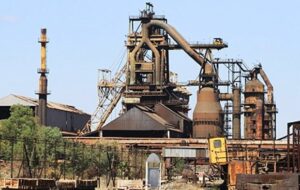BY CHRISTOPHER OKPOKO
In its International Global Economic Outlook report – H1 2023 published recently, KPMG stated that “unemployment is expected to continue to be a major challenge in 2023 due to the limited investment by the private sector, low industrialization, and slower than required economic growth and consequently the inability of the economy to absorb the 4-5 million new entrants into the Nigerian job market every year”.
The report also revealed that there are expectations for GDP to continue to grow at a relatively slow pace of 3 percent in 2023 owing to the slowdown in economic activity that typically characterizes periods of political transition in Nigeria. In the long-term, the Nigeria Unemployment Rate is projected to trend around 43 percent in 2024 and 44 percent in 2025.
Unemployment means that an economy is not making full use of the workers that are available; it may drive youths to engage in all sorts of activities that cause insecurity; the economy will not grow as quickly as it could; the economy may start to slow down; and a slump in economic activity will directly affect businesses. Other implications of high and increasing unemployment rates include limited employment opportunities, low-quality housing, fewer available recreational activities, limited access to public transportation and public services and underfunded schools.
Unemployment rate in Nigeria, which averaged 13.6 percent from 2006 to 2020 according to the National Bureau of Statistics, is currently about 33.3 percent. A higher unemployment rate as projected for 2025 implies that more people may be forced into criminality and many more households may have less income. For many businesses, this will result in lower sales as people spend less. However, there may be some advantages for some businesses, but the demerits are definitely more than the merits.
Against the backdrop of a recent review of Nigeria’s poverty map by the National Bureau of Statistics which pegged 62.9 percent of Nigerians (about 133 million people) as multidimensionally poor; and the fact that research have proven that no matter under fixed effect or random effect model, unemployment rate and crime rate are significantly positively correlated – increasing unemployment rate will cause crime rate increase as well. In fact, in a fixed effect model, according research, an increase of one percent of unemployment will cause crime rate to increase by 0.72 percent; while under random effect model, an increase of one percent of unemployment will cause crime rate to increase by 0.67percent.
Consequently, this unemployment outlook projected to reach 44 percent by 2025 is scary and portends a serious threat to Nigeria, with implications for our national security.
While it is true that the security of lives and properties is a major issue globally, Nigeria’s security situation has over the years worsened due to poor governance, and Government inability to address the challenges of poverty and rising unemployment rate in the country. The insecurity of lives and properties in Nigeria today is being championed by unemployed youths. This problem cuts across all the geopolitical regions in Nigeria, but the nature of the violence and insecurity differs from place to place.
Before now, Boko Haram was the country’s major insecurity issue, concentrated in the North-east region. But today, in the South-east, criminality, which started with kidnapping for ransom, has been overwhelmed by separatist violence and criminality which is crippling businesses in the region. In the North-west region, mass abductions, cattle rustling and localized attacks have resulted in the displacement of some communities in the region. Meanwhile, the north-central region, is still grappling with farmer and herder crises. The south-west, has witnessed an upsurge of mob, cult and ritual violence; while in the South-south region, piracy and illegal bunkering prevails.
Furthermore, as published by Statista, political instability, citizen alienation, terrorism and violence define the Nigerian crime scene.
Nigeria has recently been included among the countries with the least peace in the world, according to the Global Peace Index. It is the 18th less peaceful state. In addition, Nigeria is the sixth country most affected by terrorism, based on the Global Terrorism Index. One further serious threat in Nigeria is the risk of mass killing, or genocide. Nigeria is the second country in Africa with the highest risk of genocide and the sixth worldwide. This risk is influenced by a population of over 200 million people, a high child mortality rate, ongoing battle-related deaths, the country’s own history of mass killing, and its ethnic fractionalization.
A report titled “The Nigeria Security Situation”, released last year by Beacon Consulting, a security risk management and intelligence consulting company, stated that the number of fatalities increased by 35.9 percent in the first half of 2022 (January to June) compared to the 4,927 fatalities recorded in the first half of 2021. The report also showed that more citizens were kidnapped in 2022 compared to 2021. At least 3357 persons were abducted compared to 2540 persons abducted within the same period last year, representing a 24.3 percent increase.
Nevertheless, the Nigerian government over the years have made efforts to tackle this hydra-headed problem, but it seems that these efforts are not adequate to eradicate the menace as the response of the various security agencies have been fundamentally poor, ineffective and reactionary. Security of lives and property should be the priority of a responsible government. Therefore, this frightening unemployment projection should be a wakeup call for the incoming administration to do more to keep life and properties safe in Nigeria.











gdgdhdhhdhdhdh